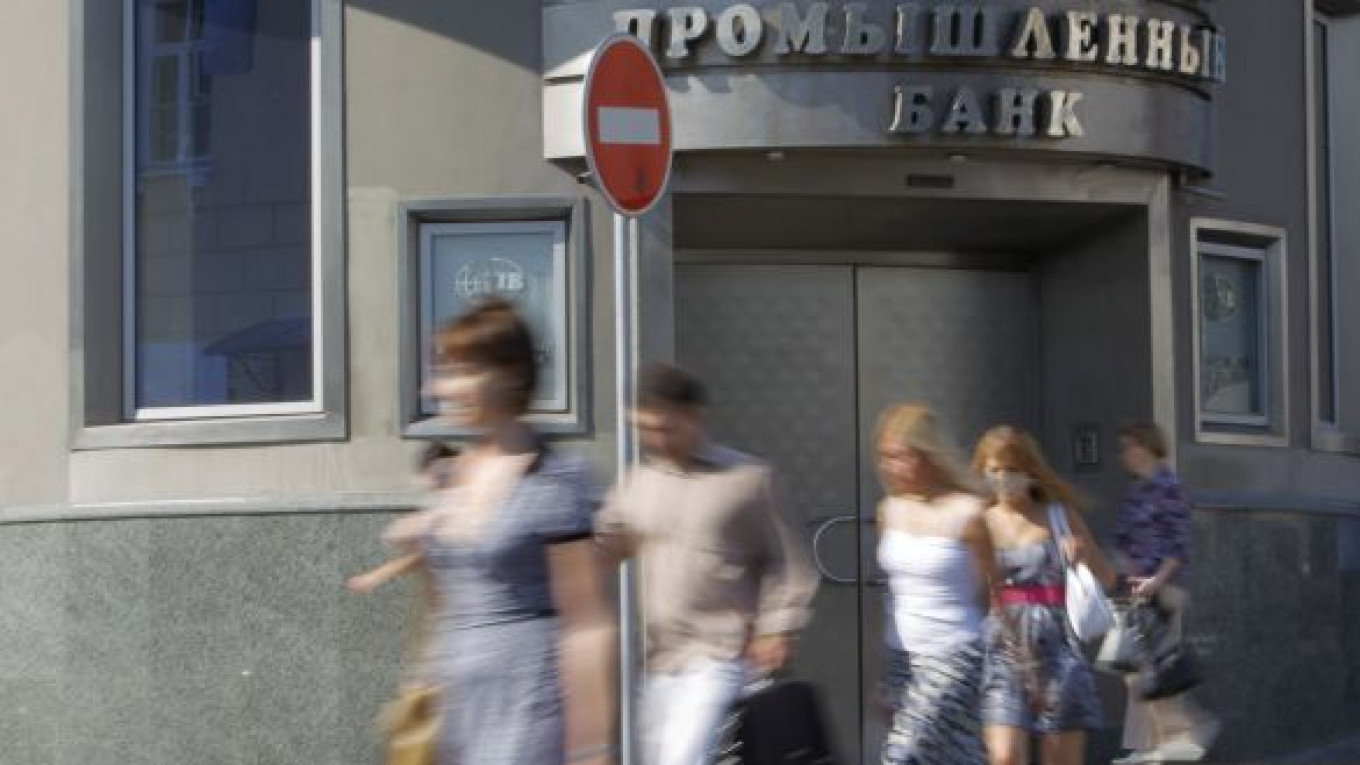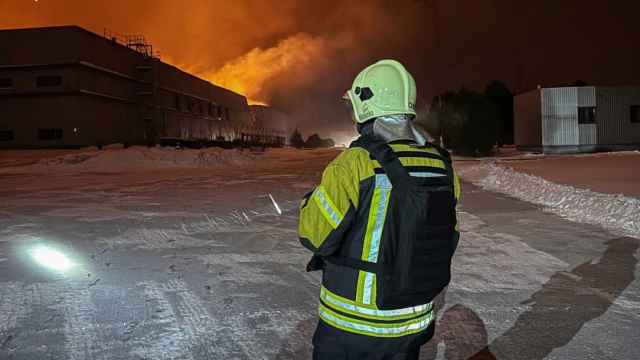Mezhprombank, the lender controlled by lawmaker Sergei Pugachyov, became the country’s first bank to renege on its foreign debt since 1999 after defaulting on $453 million of bonds.
Mezhprombank, or IIB, said it did not repay 200 million euros ($253 million) of 9 percent notes due Tuesday and sent a default notice on $200 million of bonds maturing in 2013, according to a statement Tuesday. The bank proposed a one-year maturity extension on the 9 percent notes and said holders who vote in favor of the new maturity date by July 14 will get a payment amounting to 5 percent of the principal they are owed, according to a 17-page company report released Wednesday.
IIB’s cash shortage stems in part from its reliance on Central Bank funding rather than retail deposits to finance new lending, said Yaroslav Sovgyra of Moody’s Investors Service. IIB made most of its loans to industrial companies controlled by Pugachyov, according to Trust Investment Bank.
While a default by IIB may have a “short-term negative effect” on investor confidence in Russian bank debt, the lender’s problems are not indicative of the wider financial system, Sovgyra, a senior credit officer at Moody’s, said Tuesday before IIB’s announcement. “The vast majority of investors understand that this is a pretty specific case which should not be extended to other banks,” he said.
IIB’s 9 percent eurobonds were trading at 50.25 cents on the euro as of June 30, the last day Bloomberg compiled prices for the debt, plunging from 97.75 cents at the start of the June. The 11 percent dollar bonds due 2013 closed at 58.50 cents on Wednesday, Bloomberg data show, down from 100 cents when the notes were sold in February. Credit Suisse Group and VTB Capital were joint lead managers of the February issue, Bloomberg data show.
“February was a very hot market where investors seemed already much less cautious on their buying, that is why this kind of issue could be placed,” said Sebastien De Prinsac, director of fixed-income international sales at Trust Investment Bank. “Some investors probably didn’t realize that they were buying not just a bank, but the risk of a complex industrial group.”
Finance Minister Alexei Kudrin told reporters Wednesday that he “hopes” IIB will resolve its problems without losing its banking license.
The failure of some banks today may be “healthy” because the country still has too many lenders, said Ashmore Investment Management’s Jerome Booth. The number of lenders in Russia has fallen to 1,039 as of June 1 from 1,058 at the start of 2010, according to the Central Bank. Hundreds of banks disappeared after Russia defaulted on $40 billion of ruble debt in 1998 and devalued the currency.
“If they collapse, they collapse,” Booth, who helps oversee $33 billion as Ashmore’s head of research, said at a press conference Tuesday. “You can’t say there won’t be pain, but it will be healthy. You want to have a banking system which unconditionally punishes irresponsible behavior.”
IIB asked noteholders to accept a new maturity date of July 6, 2011, according to the company report Wednesday. The bank will hold a meeting with creditors in London on July 21. IIB spokesman Dmitry Morochenko said he could not comment on details of the proposal.
Pugachyov is a member of the Federation Council, and his United Industrial Corporation, the parent company of IIB, also has assets in mining and shipbuilding. IIB has appointed Credit Suisse as an adviser.
“I’ve never been a big fan of their business model, wholesale funding for effectively related party private equity assets,” said Ian McCall, a director at Argo Capital Management, which oversees about $500 million in emerging market debt and did not buy IIB’s February bond issue. “It works fine until it stops working, and then it goes horribly wrong.”
VTB Group said in a statement Tuesday that it might lend $600 million to United Industrial using the company’s Elegestskoye coal deposit as collateral. VTB Capital may be mandated to sell the deposit as part of the deal, according to the statement.
A Message from The Moscow Times:
Dear readers,
We are facing unprecedented challenges. Russia's Prosecutor General's Office has designated The Moscow Times as an "undesirable" organization, criminalizing our work and putting our staff at risk of prosecution. This follows our earlier unjust labeling as a "foreign agent."
These actions are direct attempts to silence independent journalism in Russia. The authorities claim our work "discredits the decisions of the Russian leadership." We see things differently: we strive to provide accurate, unbiased reporting on Russia.
We, the journalists of The Moscow Times, refuse to be silenced. But to continue our work, we need your help.
Your support, no matter how small, makes a world of difference. If you can, please support us monthly starting from just $2. It's quick to set up, and every contribution makes a significant impact.
By supporting The Moscow Times, you're defending open, independent journalism in the face of repression. Thank you for standing with us.
Remind me later.






